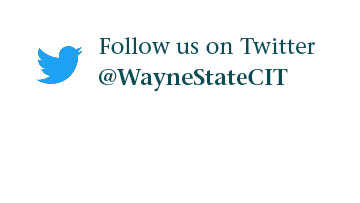Be on the lookout for scam emails about coronavirus
C&IT has spotted scammers using the coronavirus epidemic to create a sense of urgency and sympathy in their messaging. Scam emails have evolved from messages with bad grammar and click bait links, and we urge you to be cautious of these persuasive emotional appeals that try to take advantage of our desire to help others. To see the breakdown of a recent scam email using coronavirus, visit tech.wayne.edu/docs/coronavirus_scam_example.pdf
Here are common themes you can use to recognize not just scams on the web, but scams in real life:
-
Establishing authority: Scammers pretend to be a high-level official asking for help in introductory statements that have official sounding titles or credentials. Another way is to quote fake facts from a trusted organization, such as law enforcement or a government entity.
-
Emotional manipulation: This is often done by leveraging major current events about natural disasters, pandemics, or other events that negatively impact others. Scammers also use events that occur throughout the year, such as tax seasons, holidays, or in this case, coronavirus.
-
Monetary gain: This tends to be the core of the scam. Promising wealth in exchange for something such as bank account information, offering to pay extra for up front work, or a promise to donate to charity by passing along the message to others.
-
Bypassing security: Scammers want victims to use methods of communicating that are anonymous or untraceable as a way to get around security. For example, they may ask for replies via text message or from a personal email address. This could even include meeting in person off campus.
Using these clues will help you in identifying fake email, but the best way to prevent becoming a victim is to ask: Does this sound too good to be true? If it does, there is a good chance it is a scam.
If you have any questions or concerns about suspicious emails and information security at Wayne State, please contact our C&IT Help Desk at 313-577-4357 or helpdesk@wayne.edu. Please forward any suspicious emails to our security team at abuse@wayne.edu.
